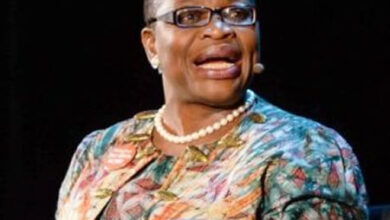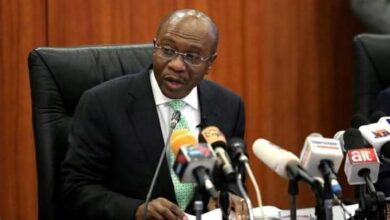After Ramadan, what next?, by Rasak Musbau |

“O you who have believed, fear Allah. And let every soul look to what it has put forth for tomorrow – and fear Allah. Indeed, Allah is Acquainted with what you do. And be not like those who forgot Allah, so He made them forget themselves. Those are the defiantly disobedient.” — Surah Al-Hashr (59:18-19)
The blessed month of Ramadan brings with it, a wave of spiritual consciousness. Muslims around the world turn away from bad conduct, strive for purity of heart, and seek closeness to Allah. This period encourages voluntary acts of kindness, like giving charity to the less privileged and avoiding sinful behaviours, including zina, dishonesty and indecent dressing.
However, the big question is: What next after Ramadan? It is essential to understand that the essence of Ramadan goes beyond abstaining from food and drink. The real objective is to develop self-restraint, self-purification, God-consciousness, compassion, and a spirit of caring and sharing.
As believers, we must maintain the spiritual discipline we acquired during Ramadan. We should not return to old habits or forget the lessons learned. Revealing clothing, dishonesty, and immoral acts are not just wrong during Ramadan, but are universally prohibited. If one can abandon such actions for a month, it should not be impossible to continue on that path throughout the year.


Ramadan is not merely a ritual to be completed, but an opportunity for transformation. The Prophet Muhammad (peace be upon him) said: “If you do not abstain from evil words and vile deeds, God has no need of your abstinence from food and drink.” This hadith serves as a reminder that fasting is not just about physical deprivation but moral and spiritual elevation.
One remarkable aspect of Ramadan is the increased use of tele-dawah and media outreach programmes by various Islamic organisations.
Daily reminders, lectures, and educational programs aired during Ramadan have a tremendous impact on the spiritual growth of the Muslim community. However, it is crucial that these programs do not cease after Ramadan. Sustaining tele-dawah efforts throughout the year can keep the spirit of Ramadan alive and continuously remind Muslims of their religious obligations.
Likewise, the practice of Tafsir (interpretation and explanation of the Qur’an) should not be limited to Ramadan alone. Tafsir sessions help to deepen our understanding of the Qur’an, connect us with its teachings, and guide us in our daily lives. If political leaders and public figures could participate in Tafsir sessions and Islamic lectures during Ramadan, why not extend this practice beyond the holy month? Scholars should also strive to deliver Tafsir and religious teachings sincerely for the sake of Allah, rather than as a means of personal enrichment.
A significant lesson from Ramadan is the importance of defending our faith through good conduct rather than conflict. Let us be ambassadors of Islam by embodying its teachings in our character and actions. We must show the beauty of our faith through acts of kindness, tolerance, and compassion rather than reacting harshly to criticism or misconceptions.
Throughout Ramadan, many Muslims dedicate time to reciting the Qur’an, attending lectures, and engaging in seclusion (i’tikaf) to strengthen their connection with Allah. Now that the month has ended, it is time to let that knowledge and spirituality reflect in our conduct within the larger society. The transformation we undergo during Ramadan should be evident in our behavior, interactions, and the way we contribute positively to our communities.
Moreover, the lessons of fasting should resonate with our approach to leadership and governance. Ramadan teaches us empathy, self-control, and integrity. Political leaders and those in positions of authority must internalise these values and work towards eradicating corruption, promoting social justice, and uplifting the needy. Our leaders should reflect on the examples of Abu Bakr and Umar, who led with humility and sincerity despite their positions of power.
As Muslims, we are also encouraged to remain conscious of social issues and make impactful contributions to societal progress. One area that requires serious attention is the education sector. Islamic scholars should focus their public lectures on addressing the decay in education, highlighting the need for an inclusive and transformative approach. Building a literate and morally sound society aligns with Islamic teachings and helps alleviate poverty and ignorance.
Ramadan is not just an annual event; it is a training ground for our souls. The spirit of brotherhood, compassion, and charity that flourished during the holy month should not be abandoned. We must continue to support charitable causes, care for the less privileged, and engage in community-building activities.
The gates of paradise are opened, the gates of hellfire are closed, and the devils are chained during Ramadan, as mentioned in the Hadith. This is an opportunity for spiritual revival and renewal. However, the true test lies in how we continue after the month ends. Are we willing to maintain the discipline, the kindness, and the devotion we displayed? Will we continue to pray fervently, reflect on the Qur’an, and engage in sincere worship?
We should also consider how our knowledge gained during Ramadan can serve as a catalyst for positive change in our community. Whether it is through media engagement, community outreach, or educational initiatives, the message of Islam must continue to resonate beyond Ramadan.
Let us not forget that defending our religion is best done by showcasing its inherent beauty and compassion, rather than resorting to conflict. The world needs to see the positive contributions of Muslims and the practical solutions our faith offers to societal challenges.
Finally, may Allah grant us the strength to sustain the goodness of Ramadan throughout the year and guide us towards becoming better Muslims and better human beings. Ameen.
. Musbau is the Director of the Public Affairs Unit, Lagos State Infrastructure Asset Management Agency.
Post Views: 2





